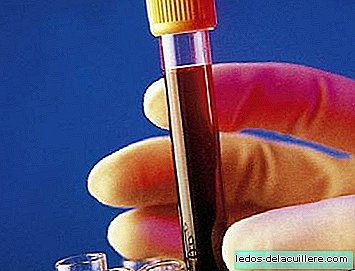
Some time ago we talked about a new non-invasive test that was being developed to detect cases of Down syndrome, and today we return to this news because a study has just been published that shows the good results of this test.
Researchers at Stanford University (United States) have developed this method to detect the syndrome without risks to the fetus. Away from current invasive procedures, such as amniocentesis, it consists of a maternal blood test.
Maternal blood contains floating DNA, 10% of which comes from the fetus. Researchers have created a new way of observing the presence of additional chromosomes that cause Down syndrome and similar birth defects in those small amounts of fetal DNA circulating in maternal blood.
If a particular chromosome is expressed in excess in this mixture of DNA, the fetus is possibly its origin, which implies an excess in the number of chromosomes.
The authors have used a method of genetic sequencing that amplified short DNA fragments and analyzed their chromosomes. Most aneuploidies (changes in the number of chromosomes), that of the chromosome 21 causing Down syndrome, were clearly identifiable from fetal DNA.
These data have been disclosed in a study published in the digital edition of the journal "Proceedings of the National Academy of Science" (PNAS). The test also detects other chromosomal abnormalities, such as those that cause Edward's syndrome and Patau's.
Although the sample has been scarce, only 18 women, the results have been positive. Hopefully, this new method will soon be confirmed as the safe way to detect these anomalies without jeopardizing the health of the mother or the fetus.












